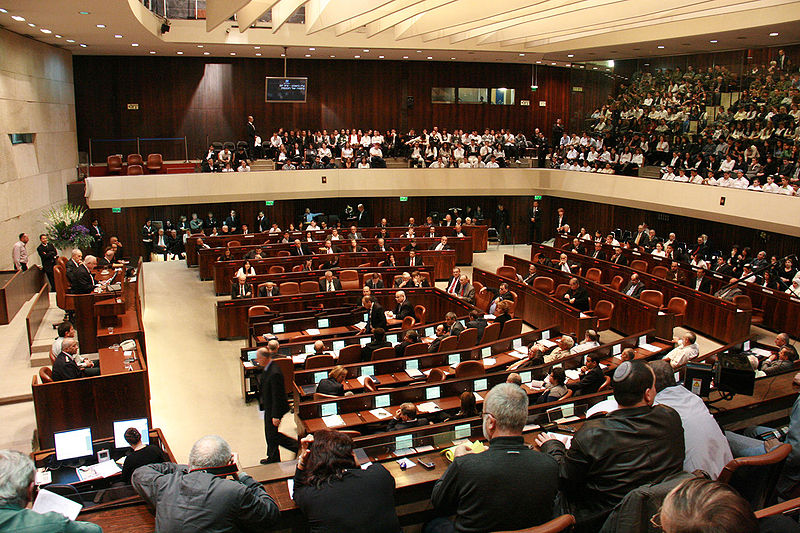Monday 14/1: Supreme Court Hearing to Cancel Ban on Balad/Tajammoa’s Hatikva Election Ad

(Jerusalem) Tomorrow, 14 January 2013 at 4:30 pm, the Supreme Court of Israel will hold a hearing on a petition submitted by Adalah on 11 January 2013 to overturn a decision by the Chair of the Central Elections Committee (CEC), Justice Elyakim Rubenstein, to ban an elections campaign video released by Arab political party Balad/Tajammoa’ (the National Democratic Assembly).
The expanded panel of five justices will consist of Chief Justice Asher Gronis, and Justices Edna Arbel, Miriam Naor, Salim Jubran and Esther Hayut.
Justice Rubenstein based his decision on the advert’s alleged “ridiculing” of the proposed “loyalty laws”, which seek to compel Palestinian Arab citizens of Israel to express their loyalty to Israel’s national anthem, Hatikva. Justice Rubenstein ruled that the advert “presents Hatikva in a distorted manner and ridicules the Israeli anthem”, which he deemed to constitute an insult to the symbols of the state. Adalah’s General Director, Attorney Hassan Jabareen, and Adalah Attorney Sawsan Zaher submitted the petition, on behalf of the Balad Chair, MK Jamal Zahalka.
Because of the need for a speedy decision, as the elections will be held on 22 January 2013, the Supreme Court decided to hear the petition alongside another petition filed by the Association for Civil Rights in Israeli (ACRI). ACRI filed a petition against Justice Rubenstein’s decision to ban Balad’s advert, as well as another advert published by right-wing political party Otzma Leyisrael.
Balad’s election campaign team has explained that the video deals with racist and discriminatory bills that the right-wing is attempting to enact. These laws include a proposed “loyalty law” that would condition Israeli citizenship on a person’s declaration of loyalty to the symbols of the state (the flag and the national anthem). According to Balad, these symbols “do not represent us and in fact, ignore our existence.”
Adalah argued that banning criticism of the national anthem through a political satirical television advert issued during an elections campaign constituted a violation of the political rights of the Arab public in Israel, especially the right to express an opinion, as well as the right to equality in standing for parliament.
The petition further argues that the function of an elections campaign is to present contentious issues of debate to the electorate. The lyrics of the Israeli national anthem are a point of contention between various members of the public. Justice Rubenstein’s decision to ban Balad’s advert is not consistent with previous Supreme Court precedent. According to previous decisions, an elections campaign ad may only be banned if its contents incites to racism, or “disturbs the minimum level of mutual tolerance”.
The petitioners emphasized that an Arab political party may voice its criticism against the national anthem within the context of an elections campaign, and may also present it in a satirical, absurd, comical or sardonic manner. Such is the case with Balad’s advert, which depicts a farcical situation in which Avigdor Lieberman, the head of the Yisrael Beiteinu political party, is singing the Israeli national anthem in Hebrew but to an Arabic melody, accompanied by Eastern dancing. The aim here is criticize loyalty laws and to encourage Arab citizens to vote in order to block these laws’ enactment.
Case Citation: HCJ 246/13, MK Jamal Zahalka v. Central Elections Committee Chair Justice Elyakim Rubenstein
For more information, please contact:
Salah Mohsen, Adalah’s Media Director, salah@adalah.org, 052-595-0922
















